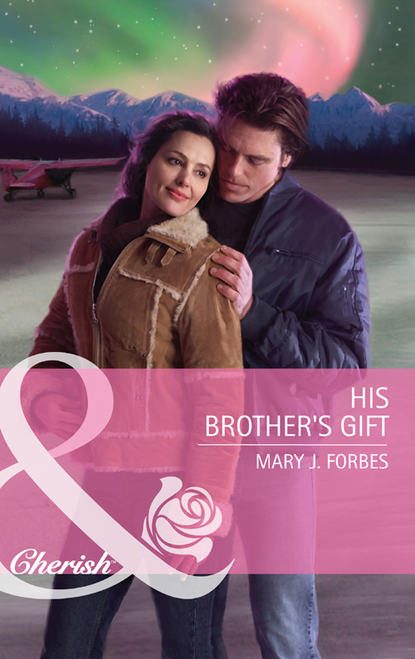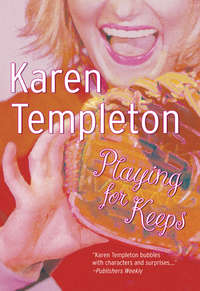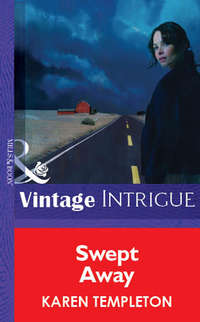
Полная версия
The Doctor's Do-Over
“And if you remember I was the one who said you were out of your mind, thinking you could keep this a secret.”
David hadn’t exactly been on board with the arrangement, Lorraine thought with a mix of aggravation and—dare she admit it?—admiration. Now. Then, however …
“She wasn’t supposed to come back! Especially with … She lowered her voice, despite their being alone. Even though they hadn’t had full time help in years, old habits die hard. “The child. That was the agreement.”
“Clearly you didn’t consider all eventualities. Believe it or not, Lorraine, you can’t control the entire world.”
Lorraine’s eyes burned. The entire world? There was a laugh. How about even her own tiny corner of it? “For heaven’s sake, David—maybe they wouldn’t even have run into each other. Why on earth did you jump the gun?”
“Because,” he said, standing, “it didn’t feel right to leave it to chance. Catching Ryder off guard if they did cross paths. Besides, aren’t you even curious about her?”
Talking about being caught off guard. Lorraine sucked in a breath: she’d never, not once, indulged herself in pointless “what ifs?” After all, she’d made the best decision, the only decision, she could have made at the time. A decision circumstances had forced her to make. To change the rules now—
“What about Jeremy?” she said, grasping at rapidly disintegrating straws. “And Caroline. They’ve only been married six months—” At her husband’s quelling look, Lorraine blew out a sigh. “What if Ryder confronts him? Did you think of that?”
“I imagine he will,” David said with a shrug. “Hell, I was all for making the boy own up to his idiocy at the time—”
“Then why didn’t you?” Ryder said quietly from the doorway, making Lorraine jump.
David waved his nearly empty glass in her direction. “Ask your mother.”
Wordlessly, Ryder turned his gaze on her, his hands shoved into the pockets of that awful old windbreaker he’d had since college. Whereas her younger son had always been given to flying off the handle—her fault, she supposed—Ryder had always been the even-tempered one, even as a toddler. Just like his father. That had unnerved her, too, his seeming imperviousness to anything that would try to unseat him. Now, however, Lorraine could tell by the glint in his dark brown eyes, the hard set to his beard-hazed jaw—another “style” also picked up in college—that his customary calm masked an anger so intense she almost couldn’t look at him.
Especially since that angry gaze relentlessly poked at the guilt she’d done her best to ignore for the past ten years.
Secrets, she thought on an inward wince. You would think she’d have learned her lesson the first time, wouldn’t you?
Apparently not.
Ryder watched his mother, still attractive in an old-money, take-me-as-you-find-me way, sink into the sofa’s down-filled cushions, sighing when one of the dogs heaved herself to her feet and plodded over to lay her head in his mother’s lap. A pair of silver clips held her fading red curls back from her sharply boned face; in her rust-colored cardigan, jeans and flats, she gave off a certain Kate Hepburn vibe most people found intimidating. And, to a certain extent, fascinating.
Most people. Not Ryder.
“Well?” he prompted.
She distractedly traced the design of the Waterford lamp beside her before folding her hands on her lap. “The thing between Jeremy and Mel … we had no idea. None. Until Maureen marched Mel in here—into this very room, in fact—that fall and announced that Mel was pregnant.” His mother shot a brief glance in his direction. “Frankly, we assumed the baby was yours.” Her mouth twisted. “Until we did the math.”
Too angry to speak, Ryder crossed his arms high on his chest. “And when you realized it wasn’t?”
“Jeremy was barely eighteen,” his mother said, her gaze fixed on the golden retriever’s smooth head as she stroked it. “He’d just started at Columbia …” She pushed out a truncated sigh. “It was perfectly obvious it was all a mistake. That it meant nothing. To him, especially, but even Mel admitted …”
When Lorraine looked away, Ryder prodded, “Mel admitted what?”
“That she didn’t love Jeremy. Oh, for heaven’s sake, Ryder—don’t look at me like that. It was a silly summer fling, nothing more. A silly summer fling with dire consequences,” his mother finished on a grimace. “But then, Jeremy could hardly be blamed, could he? Not with the way M-Mel kept flaunting herself in those short shorts and tight tops—”
As in, cut-offs and T-shirts. Same as every other high school girl wore.
“And that bathing suit—”
“So, what? She’s automatically the guilty party because she grew breasts?”
Twin dots of pink bloomed on his mother’s cheeks. “Of course not. But she didn’t have to be so, so blatant about them. She could have dressed less … enticingly. I mean, you know your brother—”
Behind them, his father huffed out a breath. “Lorraine, for pity’s sake.”
“Well, it’s true. She played right into his hand.”
“Literally,” Ryder muttered, his own fisting inside his pockets. “You know, being neither blind nor gay, I was pretty aware of Mel’s … assets, too. Assets she didn’t flaunt any more than any other girl her age. Less, in fact, than most. That bathing suit—sure, it showed off her curves, but we’re not talking a string bikini, for heaven’s sake.” Ryder glowered at his mother. “Yeah, I know Jeremy. But I would’ve thought …”
His mother stood. “You can’t lay this whole thing at his feet, Ryder. Even though I know you’d love to do that. I never did understand why the two of you never got along, which is one reason we decided it was better to keep this from you. Because I knew how much it would hurt you, that Mel …” At Ryder’s glare, Lorraine pressed her lips together, shaking her head.
“However, I refused to let one mistake derail Jeremy’s plans. Not after he’d had to work so hard to get into Columbia. So we struck a deal—one Maureen agreed to, by the way—that in exchange for our financial support they’d leave St. Mary’s for good and we’d never speak of any of this again.”
As livid as he was, Ryder felt his eyes narrow. Something was off. Not so much what his mother was saying but how she was saying it. But right now he just wanted the facts.
“So it never occurred to you to make Jeremy own up to his part in this?”
“At eighteen? What on earth was he supposed to do?”
“And Mel was sixteen. Something tells me she definitely got the short end of the stick—”
“I tried to make her see reason!” his mother said, and he caught the flash of desperation in her eyes. “To explore her … options, but she was having none of it. She insisted on having, and keeping, the baby, although for the life of me I never understood why. That was her choice, Ryder. Our choice—”
“Was to let my brother off the hook by sweeping the whole thing under the rug?”
“There’s a trust fund for the child. And we sent enough money through the years so they were never in any danger of starving. We honored our obligations, believe me. In the way we best saw fit. Your sister-in-law has no idea, by the way. And we’d appreciate it if you didn’t tell her. It could ruin their marriage. And I’m sure you wouldn’t want that on your conscience.”
Ryder smirked: although the news had gobsmacked him, nothing coming out of his mother’s mouth now surprised him in the least. To say Lorraine Caldwell was a control freak didn’t even begin to cover it. As far back as Ryder could remember his mother had ruled the household—in her childhood home, the estate having belonged to her surgeon father, her D.C.-socialite mother, long before she’d married the gentle GP who’d stolen her heart, as lore would have it, that summer when she was nineteen. As far as Ryder could tell she’d been Daddy’s spoiled little princess who’d seen no reason to change her modus operandi—as in, always getting her way—when she grew up. That she still seemed to have his father, as she’d had her own, so tightly wound around her little finger was a mystery he doubted he’d ever solve.
Except Ryder now looked to his father, seeing for the first time in David’s chagrined, embarrassed expression the older man’s constant acquiescence to his mother’s whims for what it was—weakness, pure and simple. For God’s sake, grow a pair! he wanted to shout, even as his heart cracked a little more, that the man he’d so wanted to believe in, look up to, apparently didn’t really exist. For his dedication to his work, his patients, Ryder would always admire him. But respect him as a man? As someone he could count on to do the right thing?
Not so much.
Disheartened, he thought back to that silent promise he’d made to that chubby, bald, two-day-old baby, to look out for her. Protect her. Only he’d no idea at the time it would be his own family he’d have to protect her from. Or at the very least, try to undo ten years’ worth of damage.
“No,” he said to his mother. “I swear I won’t breathe a word to Caroline. That’s not my place, it’s Jeremy’s. Whose conscience, frankly, could use a good swift kick in the ass. But whatever. However, now that I know I have a niece, you better believe she’s going to know at least one member of this family gives a damn about her.”
“And what if Mel isn’t on board with that idea?”
He looked from one to the other. “That’s between Mel and me. Because you two officially have nothing more to say about it.”
Chapter Two
All that food in the house, and Mel and Quinn both decided they’d rather have stir-fry. Go figure. But at least by the time they finished shopping at the only decent supermarket in town, she’d stopped looking over her shoulder, convinced Ryder—or worse, one of his parents—was going to appear at the end of every aisle. She’d driven by the clinic, seen his name beside his father’s; a quick Google search on her phone revealed that Jeremy was a junior partner at some hot-shot law firm in New York.
“Hey, Virginia plates,” Quinn said as Mel’s headlights stabbed at the weather-and-time ravaged house, as well as the late model Lexus parked in the driveway. The rain had finally let up, although it had turned bone-chillingly cold. Welcome to early fall on the Eastern Shore. “Whose car is that?”
“I’m gonna guess April’s,” Mel said, all bittersweet ache at the prospect of seeing her cousin again after more than a decade. She and April had chatted briefly the day before, but only long enough to coordinate their schedules. And unleash a boatload of memories.
And laughter.
We were happy here, Mel thought on a smile, even as the backs of her sinuses twinged. She’d been happy here, during those summers when Amelia called enough of a truce with Mel’s mother to allow Mel to hang out in the rambling old house with her close-in-age cousins. Summer sisters, they’d called themselves—
“Ohmigosh! There you are!”
In a flippy little plaid skirt and coordinating cardigan, April—still tiny and bubbly and strawberry blonde—burst out of the front door and down the steps before they’d even climbed out of the Honda, where she grabbed Mel in a hug hard enough to do damage, then let go to fan her now tear-streaked face.
“Honest to Pete,” Mel said, laughing, digging in her gargantuan purse for a pack of tissues which she handed to her cousin. “Still?”
“I know, I know, I’m terrible!” Gal always had cried at the drop of a hat. “But I can’t help it, it’s just so good to see you … wait,” she said, her soggy gaze turning to Quinn, standing off to one side. “Oh, my word—is that your little girl?”
“Little girl?” Mel said, pretending to look shocked. “What little girl? For heaven’s sake, she must’ve crawled in the backseat while I was at the store—”
“Mo-om, geez,” Quinn said. Rolling her eyes. Then she extended her hand to April. “I’m Quinn. The sane one—”
“Don’t you go giving me your hand—come here, sugar,” April said, hauling Quinn into her arms, and Mel’s own eyes watered. Yes, April had cried more than ten girls put together, but this was what Mel remembered most about her cousin, that she loved more than any human being she’d ever known. That her tenderheartedness was only surpassed by an unfeigned generosity that put most people to shame.
Then she noticed how the feeble porch light glinted off the tasteful, but impressive, array of diamonds on April’s ring finger. Between those and the car, Mel got the feeling her cousin was a lot better off than when they’d been kids. Not that they’d ever discussed such things, even when they were all old enough to figure out that while their grandmother obviously had money—then, at least—her three daughters had all somehow bounced well out of range of that particular tree.
“Aren’t you the prettiest thing?” April now said, holding Quinn at arm’s length before turning to Mel. “I take it she looks like her daddy, since I’m not seeing a whole lot of you in that face—”
“Quinn, let’s get this food out of the car,” Mel said, smartly going around to the trunk. “Stir-fry for dinner okay with you?”
April shot her a look, but took the hint and simply said, “Sure thing. I’m starved!”
Despite their earlier attack on the kitchen, the cloying dampness assaulted Mel’s nose as they carted the groceries through the conglomeration of dusty wicker and sisal and faded pastels hunched together on scabrous floors in the large gathering room, every surface obliterated by their grandmother’s “collections.” Dusty paintings hung askew on walls gone cobweb-gray; mismatched shelves bowed under the weight of hundreds, if not thousands, of books and DVDs and videotapes. At least there weren’t any cats.
That they’d found, at any rate.
“I had no idea the place had gone to seed like this,” April whispered to Mel as they loaded the bags onto the now disinfected pine table in the middle of the oversize kitchen. Quinn dumped her bags, as well, then took off to continue exploring. Mel was half tempted suit up the kid in hazmat attire. And maybe a cross.
“Seed, hell,” Mel muttered as she hauled two gallons of milk onto the top shelf of the fridge, which at least was no longer toxic. “The ancient Greeks had nothing on the civilizations growing in there.”
“So you’re saying it was worse?”
“Heh.” April stared at one of the kitchen chairs; Mel chuckled. “Your butt might smell like Pine-sol when you get up, but you’re good.”
“The lawyer said Nana died virtually broke,” her cousin said, sitting. “That the house … this was all that was left.”
“Because she clearly spent everything she had on crap she didn’t need,” Mel said. “Have you been upstairs yet?”
“After seeing the gathering room? I didn’t have the nerve. Not alone, anyway. And you let Quinn go up there?”
“She’s an intrepid soul, she’ll be fine.”
April sighed. “I cannot imagine how long it’s gonna take to sort through all this junk. Although I don’t suppose it was junk to Nana. And who knows? There might be some valuable stuff in amongst all that …” She waved her hand, searching for the right word.
“Trash? I seriously doubt it. Frankly, my vote is for lighting a match.” Mel lifted her hands. “Oops.”
“Bite your tongue,” her cousin said, coloring. “And you know she used to have good things. I remember the crystal. And the china. And some of the furniture dated back to when the house was built—”
“And sometimes, old is just old. April—the place is about to collapse, from what I can tell—”
“I’m sure most of it’s cosmetic!” At Mel’s snort, she added, “You mark my words, once we get it all cleared Out …” Her eyes filled. “We can bring it back to life, Mel. I’m sure of it.”
Too tired to argue, Mel changed the subject. “So … you’re married, huh?” April frowned slightly. Readying the veggies for slaughter on a cutting board in the middle of the kitchen table, Mel pointed to her cousin’s left hand with one of the knives she’d hauled from Baltimore. Because some things, a real cook doesn’t leave home without.
“Oh,” April said, touching the rings. “I am. Or rather, was. Clayton—my husband—died a few months ago.”
“Oh, God, honey—”
“It’s okay, he’d been ill for a long time.” Then she squinted up at the forlorn schoolhouse-style fixture dangling in the center of the room. “That has got to go.”
“And it will, when the flames reach the kitchen.” Mel clanged her iron skillet onto the gas range, turned the heat on high, then returned to the table. “I take it you don’t want to talk about your husband?”
“Not any more than you do the house, apparently.”
“I did talk about the house, I suggested we level it and collect the insurance. That, or turn it into an annual Halloween attraction.” At her cousin’s silence, she frowned. “What?”
“Nothing.”
“Nothing, my hiney.” Mel waved the knife in April’s direction. “I remember that look. All too well. That look spells trouble.”
On a soft laugh, April reached across the table to briefly squeeze Mel’s wrist, before grabbing a red pepper slice and nibbling on it. “It’s nice, being here with you again.”
“Ditto. Although … I’m not the same person I was then.”
“Who is?” April said on a sigh. “Even so, despite the clutter and the filth and wildlife I don’t even want to think about, being back here … it’s like time stood still. Not that I feel like when we were kids—and heaven knows I wouldn’t want to—but it’s like the me I am now can feel the me I was then looking over my shoulder. Didn’t expect that.” She paused, then said, “So did you keep up with Ryder or what?” When Mel shot her a what-the-hell look, April grinned. “It’s hardly an illogical question, Mel. Well?”
“No.”
“Really? I mean, I know how close you two were—”
“We were childhood buddies, that’s all,” Mel said, wondering if it was too late to bake something. As if that was a serious question. “Besides, he went off to med school, and Mama and I moved to Baltimore after Dad died, and … we lost touch—”
Quinn bounded into the kitchen—Mel had often wondered if the child had springs on the soles of her feet—and straight to the table to snatch a carrot slice. “When’s dinner? I’m about to expire from hunger.”
“Ten minutes,” Mel said, carting the chopped veggies to the stove to dump them into the sizzling oil. “You can set the table. Dishes are up there.” She nodded toward the cupboard next to the sink. “Used to be, anyway.”
After filching a pepper slice, Quinn swung open the cupboard door, nearly gagging when she pulled down an avocado-green Fiestaware plate that looked like it hadn’t been washed in twenty years. “Gross!”
“Hey,” April said with a laugh. “When we were kids we’d’ve rinsed it off and called it good.”
“And you, child of mine,” Mel said as she stirred, “used to lick the kitchen floor.”
Shock and horror bloomed in Quinn’s blue eyes. “Did not!”
“Got the video to prove it. You apparently have the immune system of an android. Palmolive’s right on the sink, baby. Go for it.”
After dinner, during which they talked, and laughed, and reminisced more than Mel had any idea they could, Quinn disappeared again to poke through those ten thousand books—heaven!—while April and Mel cleaned up. Her hands deep in Palmolive suds, April looked over at Mel, drying the dishes and stacking them on the counter rather than putting them back with their disgusting little friends.
“Dinner was fantastic. You always cook like that?”
“Thanks. And yes. Cooking’s my thing.”
“Really? Huh.” Behind her, Mel heard sudsy swishing. “So … is Quinn’s father in the picture?”
“Nope,” Mel said lightly. “Never has been.”
More swishing. Then: “Is she Ryder’s kid?”
Yeah, she’d expected that. Still, the assumption needled. Especially since there were other people in town who’d be all too eager to leap to the same conclusion. “No. As I said, Ryder and I were friends. Good friends.” She felt a tight smile tug at her mouth. “There was no way anything untoward would have happened between us. He would have never let it.” At her cousin’s silence, Mel turned. “What? You don’t believe me?”
“Oh, I believe you. But I also remember that last summer we were all together, when Ryder took the three of us out on his dad’s boat.” Hauling the clean skillet onto the drainboard, April slid Mel a devilish grin. “I also remember the way he looked at you when he thought nobody would notice.” A wet hand pressed to her chest, she released an exaggerated sigh. “And I thought if a boy looked at me like that? I’d absolutely die of happiness. Die, I tell you.”
“And how many romance novels did you read that summer?”
April belted out a laugh, the sound unexpected from her delicate frame. “Best. Summer. Ever,” she said, and even Mel had to smile, at how they’d discovered their grandmother’s stash of old, yellowing Harlequins in a trunk on the porch, clandestinely stashing them in their beach towels to read aloud to each other as they sunbathed. Damn books were probably still in the house somewhere. If they hadn’t completely disintegrated by now—
“However,” her cousin went on, “I also caught the way you looked at him. And don’t you dare try to deny it. These eyes know what they saw, yes, they do.”
Overhead, Mel heard the floorboards creak. “Fine,” she said with a quick glance toward the ceiling. Either Quinn had changed rooms upstairs or there was a raccoon the size of Cincinnati up there. “So I might have had a little crush on him. I mean, I suppose it was inevitable, considering how kind he’d always been to me.”
April laughed again. And flicked water at her.
“He was my friend, April,” Mel said, zapping her cousin with the damp towel. “And that was the only thing that mattered.”
Wringing out the sponge and laying it on the edge of the sink, April turned to her with a frown. “Then why’d you two stop talking to each other?”
“Because we just did!” Mel slammed the last plate a little too hard on the pile, then shut her eyes, thinking, Yeah, hand her the gun to shoot you with, why not?
She heard April dump the sudsy water into the sink, yank another dishtowel off the old “finger” rack under the counter.
“That’s probably not dry yet,” Mel muttered. “I just washed it this afternoon.”
“It’s fine.” April wiped her hands and hung the towel back up, then leaned closer to the sink to look out the window at the plum-colored sky. “I didn’t mean to upset you, honey. But being back here … guess it’s made me a little melancholy. Like I want to recapture a little of that magic, you know?”
“I do, actually. But it’s not possible.”
“I know. Still, it’s sad. You and Ryder losing touch.” She turned to Mel. “Don’t you think?”
“I don’t. Think about it, I mean.” Or at least she hadn’t until a five-minute phone call once more snatched the rug right out from under her.
“You think you’ll see him while you’re here?”
“Not planning on it. And can we please change the subject—?”
The doorbell rang. After a fashion. “Oh! I bet that’s Blythe,” April said, heading out of the kitchen. “Last time we talked she said she didn’t know if she’d get in tonight or tomorrow …”
Not at all sure if she was ready to deal with her older, bossier cousin, Mel turned on the old radio that had been in that same spot on the counter forever, fiddling with the dial until she picked up some oldies rock station from Dover … the same music her mother had listened to while cooking in the Caldwells’ kitchen when she’d been growing up. Over Simon and Garfunkel’s “The Sound of Silence”—heh—she heard April’s cheery, non-stop prattle coming closer. Steeling herself, Mel turned, a forced smile stretching her cheeks.
And nearly passed out.
“That last thing you were saying? You might want to revise that,” April said, clearly enjoying the heck out of the moment before she vanished, leaving Mel to face Ryder all by her little self.













